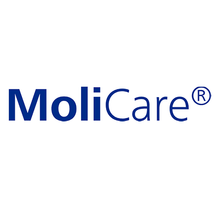Returning home from a hospital stay can result in unexpected challenges for many seniors. Finding themselves back at home after a hospital stay, many older adults struggle to manage their medications and make follow up doctor’s appointments as well as obtain the physical assistance and inhome support they may require, at least on a temporary basis.
As a result, many older adults do not successfully make the transition home well and end up returning to the hospital. In fact, one in five Medicare patients are readmitted to a hospital within 30 days after discharge. Studies have shown that nearly half of the readmissions are linked to social problems and lack of access to community resources.
You can help ensure that you or your loved one makes a successful transition home from the hospital if you start planning for your hospital visit before you are admitted for a planned procedure or for unexpected visits to start planning for discharge the day of admission. Planning goes a long way to help patients address the questions that arise during the discharge process and make a safe and smooth return home.
Make sure you or your family caregiver talks to a discharge planner, someone at the hospital who helps plan a smooth transition home. There are a lot of details to work out and the sooner you start the better. Here are some important issues to keep in mind:
Make sure to order all the needed equipment and supplies. A member of your hospital team can help you with this task. If you are eligible for home care agency services, find out what the agency provides and what you must get on your own. Here are some good questions to ask:
■ Will I need a hospital bed, shower chair, commode, oxygen supply or other equipment? If so, where do I get these items?
■ What supplies do I need? This may be diapers, disposable gloves and skin care items. Where do I get these?
■ Will my insurance pay for the equipment and supplies?
Additionally, your home should be comfortable and safe, and a good place for care. Ask the hospital team if you need to do anything special to get ready. This might be to:
■ Make room for a hospital bed or other large equipment.
■ Move out items that can cause falls, such as area rugs and electric cords (a good idea in any event).
■ Create a comfortable space for a family member or friend who might be staying with you for a few days.
■ Find a place for important information, such as a bulletin board, notebook or a drawer.
You and/or a caregiver will likely do certain tasks as part of your care. What will you be able to do by yourself? What will you need help with? It is important that you and/or your caregiver know how to do these tasks safely and properly.
You and any caregivers you might have should try to learn as much as possible while you are still in the hospital. You can do this by watching hospital staff as they do these tasks and asking them to watch as you try these tasks yourself. Sometimes, hospital staff will not teach these tasks until the day you leave the hospital.
This may not be a good time to learn if you feel rushed or overwhelmed. Learn what you can and ask who to call if you have questions at home. You might be told to call someone from the hospital, a home care nurse or other health care professional. If you are a caregiver, speak up if you are afraid of doing certain tasks (such as wound care) or cannot help with personal hygiene (like bathing or changing adult diapers). The hospital team needs to know what tasks you can and cannot do so they can help you plan for any needed help.
It is important to be taking the right medications, at the right time and in the right amount. Here are some questions to ask that can help you do this job well:
■ What new medications will I take? How long will I take them?
■ Should these medications be taken with meals? At certain times each day?
■ Do they have any side effects?
■ Can new medications be taken with those I was taking prior to being admitted?
■ Are any new medications listed in the “Medication Management Form,” along with other prescriptions, overthecounter medications, vitamins and herbal supplements?
■ Do I get these medications from my pharmacy or the hospital?
■ Will my insurance pay for these medications? If not, are there generic alternatives?
You may have a lot of questions during the first few days at home. Make sure you have phone numbers for people on the hospital team, as well as any home care agency involved with your care and a listing of community services you may need. Make sure you know what to do for your care. This includes knowing:
■ Are there any symptoms that you must report right away, such as fever, intense pain, or shortness of breath? If you notice these symptoms, who do you call and what should you do?
■ Are there limits or restrictions on what your can do? For example, you might not be able to drive, take a bath, lift heavy things or walk up or down stairs.
■ Is it safe to be alone? How often should I ask a family member or friend to check in?
Many communities have resources that can help you and your caregiver, such as: help with transportation for medical appointments, home delivered meals, medication management assistance, chore services, inhome support services, as well as caregiver support and respite (time away from caregiving) To find out about the local resources in your community, contact your local Area Agency on Aging, you can get connected with them by calling the Eldercare Locator at 800.677.1116 or visit www.eldercare.gov.
from Eldercare Locator






